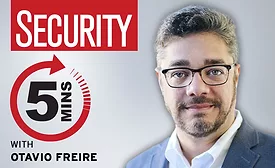Home » social engineering
Articles Tagged with ''social engineering''
Five cyber threats to watch in 2021
Trends, challenges and priorities for building a strong cybersecurity posture
January 13, 2021
Sign-up to receive top management & result-driven techniques in the industry.
Join over 20,000+ industry leaders who receive our premium content.
SIGN UP TODAY!Copyright ©2026. All Rights Reserved BNP Media.
Design, CMS, Hosting & Web Development :: ePublishing













